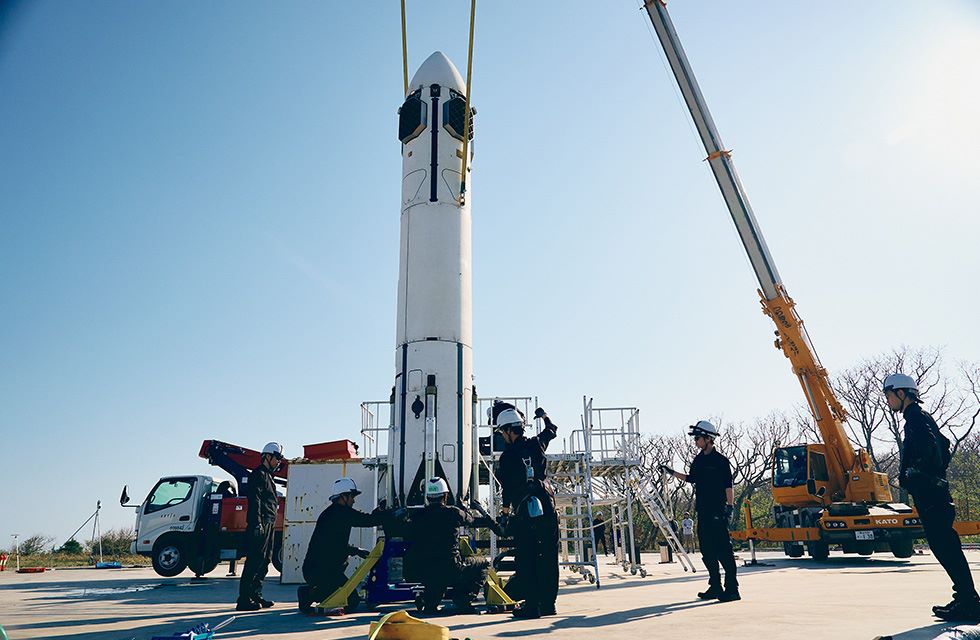[video] Honda successfully tests a reusable rocket prototype
Honda, a world-renowned car and motorcycle manufacturer in Japan, surprised the aerospace world on 17 June 2025, when its research arm, Honda R&D, successfully conducted the first launch-and-landing test of its experimental, reusable rocket near Taiki Town, Hokkaido.
Standing roughly 6.3 meters (20.6 ft) tall and weighing over 1,300 kilograms when fully fueled, the rocket soared to an altitude of 271.4 meters (890 ft) and hovered in flight for 56.6 seconds before making a pinpoint landing, coming to rest within just 37 centimeters of its target using deployable legs, the company said in a press release.

Workers preparing the rocket for launh. Credit: Honda
This test marks a milestone in Honda's long-term ambition to achieve suborbital flight by 2029. Though this altitude does not yet reach the Kármán line (~100 km), it demonstrates key technologies vital for reusable space vehicles, including flight stability on both ascent and descent, accurate navigation, and vertical landing capabilities.
Honda has clarified that the project remains in the fundamental research phase, with no final decisions made on commercialization or progression to orbital launches. Instead, these tests are aimed at supporting the company’s broader goals — such as satellite deployment for its own connected-car and automated-driving services.
More to read:
[video] How rockets can be launched into space without fuel
The test took place under stringent safety protocols: a 1 km exclusion zone, real-time flight corridor monitoring, and control of speed and attitude in accordance with Japan’s Cabinet Office guidelines. The initiative builds on its in-house expertise — ranging from robotics and engines to autonomy systems — to power innovation beyond the automotive sector.
More to read:
[video] Can a thruster power rocket without propellant?
Honda now joins a growing list of private players in reusable-launch development. Internationally, this includes SpaceX’s Falcon 9, Blue Origin, and emerging Chinese and European efforts.
Within Japan, domestic competition is heating up — Toyota is backing Interstellar Technologies, while startups like Innovative Space Carrier are progressing under government space-venture funding aimed at doubling industry value to ¥8 trillion by the early 2030s.
A video of the event is available on YouTube.







